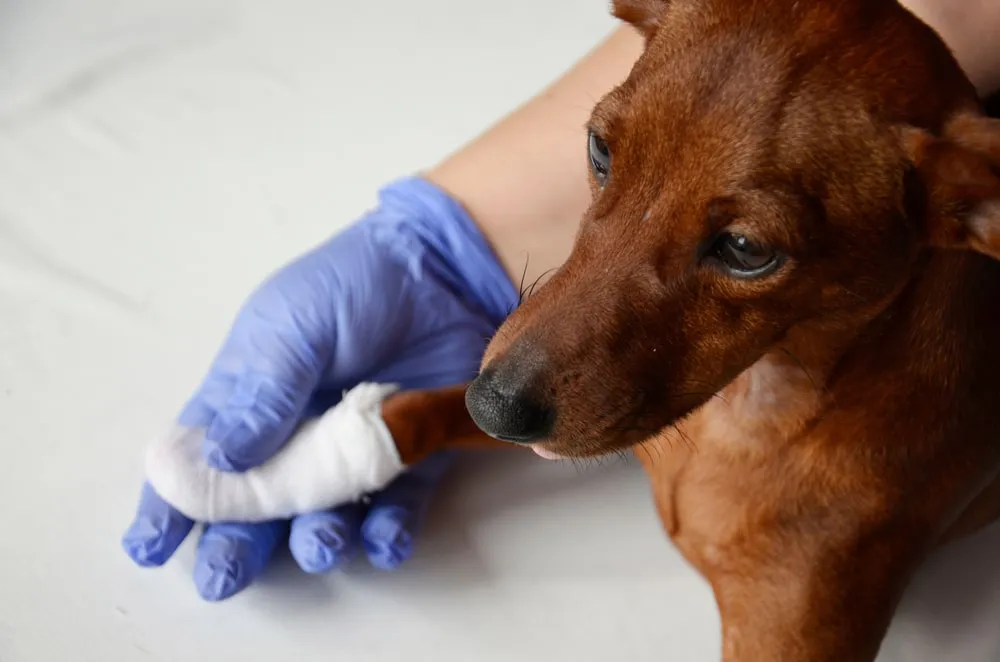PET CALENDAR
Pet First Aid Awareness Month
April 1 is marked as the beginning of Pet First Aid Awareness Month, and while you may be prepared to deal with first aid emergencies for your human kids, many people don’t think to prepare a first aid kit for their cats and dogs. It’s inevitable that your pet, like your children, will encounter some kind of injury at one point or another, and there are several things that will be helpful to have on hand when it happens.
We've created a simple checklist for you of the items to include in your pet emergency-ready kit:
- Phone numbers. Keep contact information for your primary veterinarian, emergency animal hospital, Animal Poison Control (888-426-4435), and any emergency contacts and yourself in your first aid kit for easy access. If you’re away, the pet-sitter can easily access this information without wasting precious time searching frantically;
- Gauze and non-stick bandages for wrapping wounds;
- Adhesive tape for securing bandages or gauze;
- Milk of magnesia or activated charcoal to absorb ingested poisons (call your vet before administering);
- Hydrogen peroxide (3%) to induce vomiting (call your vet before administering);
- Digital fever thermometer to check temperature;
- Eye dropper to administer oral treatments or flush a wound with antiseptic;
- Muzzle to cover pet’s head and prevent biting. Muzzles can be made from gauze, towels, or nylon stockings in a pinch (only use a muzzle if your pet is not vomiting);
- Leash to transport pet if he or she can walk without further injury;
- Blanket or yoga mat to act as a stretcher in the event that your pet cannot walk;
In addition, there are several tips to be aware of when handling an injured pet. Never assume that even the gentlest pet will not bite or nip when injured. Pain and fear can cause instinct to take over and your pet may display primal behaviors while you’re treating him. Don’t try to hug or comfort your pet and keep your face away from her face, as this may scare or further injure the animal.
Perform an assessment of your pet’s injuries slowly and gently, and stop if the animal becomes agitated or aggressive. Call your vet or emergency animal hospital on the way so they are prepared for the nature of the injuries when you arrive. Keep in mind that any first aid performed on your pet should be considered an intermediary measure pending examination by your veterinarian. Once you have stabilized your pet, call your vet immediately for further guidance.
Consider Investing in Pet Insurance
Looking for more ways to keep your pets happy and healthy? Consider investing in a pet insurance policy with MetLife Pet Insurance.1 We offer dog insurance and cat insurance policies that just may be a good for your pet and your budget. Get your free quote today.

